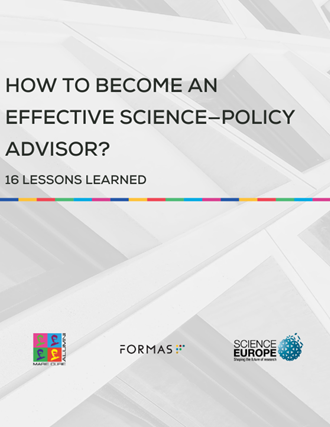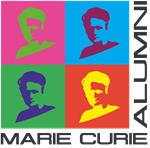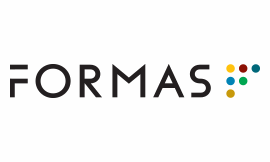
-
Share on
Good Advice for (Young) Science-Policy Advisors
Side event to SAPEA Conference 'Science Advice Under Pressure'
This event was an online side event to the major public conference 'Science Advice under Pressure', organised by SAPEA (Science Advice for Policy by European Academies). It was co-organised by the Marie Curie Alumni Association, Formas, and Science Europe.
About the event
The COVID Pandemic brought science-policy advice to the forefront, making the importance of science-informed policy advice even more evident. Since the start of this crisis in 2019, politicians and policy makers were under high pressure and turned to scientific experts to better understand the challenge and make quick decisions in complex situations. Every country established different types of science-policy interfaces to have science-informed advice for decision-makers at all levels (national, regional and local governments as well as European and international ones).
This panel event discussed 'lessons learnt' for researchers who may consider becoming science-policy advisors. Top experts and early career researchers presented their views and experiences on career perspectives for science-policy advisors, considering both individual skills, competencies, and training needed, as well as the possible professional paths and different organisations involved. A specific focus was the nexus between scientific integrity and autonomy at personal and institutional levels.
About the panel
The panel presented and discussed advice for researchers interested in pursuing this career in a highly interactive way. The panellists proposed their one-line advice to be voted on by the audience. Then, the experts explained each advice more in-depth, discussing the importance, rationale, and implications of these lessons learnt with the participants. In the end, the audience took home ten to twelve messages on pursuing engagement in science-policy advice.
Panellists included:
- Dr. Mostafa Moonir SHAWRAV, Former Chair of the Marie Curie Alumni Association (MCAA)
- Dr. Véronique HALLOIN, Secretary General of the Fund for Scientific Research (F.R.S.-FNRS)
- Prof. Dr. Zbigniew Władysław KUNDZEWICZ, Poznan University of Life Sciences, Poland
- Dr. Mairéad O’DRISCOLL, Chief Executive Officer of the Health Research Board of Ireland (HRB)
How to Become an Effective Science–Policy Advisor? 16 Lessons Learned
Science–policy interactions have a longstanding relationship with complex dynamics. This report showcases 16 lessons learnt from the event ‘Good Advice for (Young) Science-Policy Advisors’, organised by Science Europe, FORMAS, and the Marie Curie Alumni Association in April 2022.
Recordings
Both a full recording of the event (see below), as well short excerpts on each of the items of advice are available.
Discussion on Advice Items
Advice 1: "Researchers should learn to understand the perspective and language of policy makers."
Advice 2: "A good science–policy advisor is also a peer-recognised scientific expert."
Advice 3: "Researchers should deliver policy-relevant, rather than policy-prescriptive advice."
Advice 4: "Science-policy advice is different from science communication, as they address different audiences: policy makers and the general public."
Advice 5: "Researchers must be aware that science is not the only source for policy makers."
Advice 6: "Researchers should be ready to discuss with contradictory experts."
Advice 7: "Researchers should engage with policy makers, being aware that they might be instrumentalised. This risk should not prevent them from engaging in science-based policy advice."
Advice 8: "Researchers should consider the aim of their policy advice, having a clear goal for their contribution."
Advice 9: "Science advice for policy making is also for early-career researchers, not only for senior scholars."
Advice 10: "Science advice for policy making is also for early-career researchers, not only for senior scholars."
Advice 11: "Rectification of fake news and misconceptions is an important duty of scientists."
Advice 12: "Carefully consider the policy question, and then think about the scientific advice to inform an answer."
Advice 13: "Researchers should get involved in science-policy advice early in their career to develop their expertise and experiences."
Advice 14: "It is not possible to act as a science policy advisor and activist at the same time."
Advice 15: "Scientists should communicate uncertainty to decision makers, rather than ignore it."
Advice 16: "Science advisors should know the different stages of the policy cycle: agenda setting, looking at alternatives, policy design, implementation, and evaluation."








